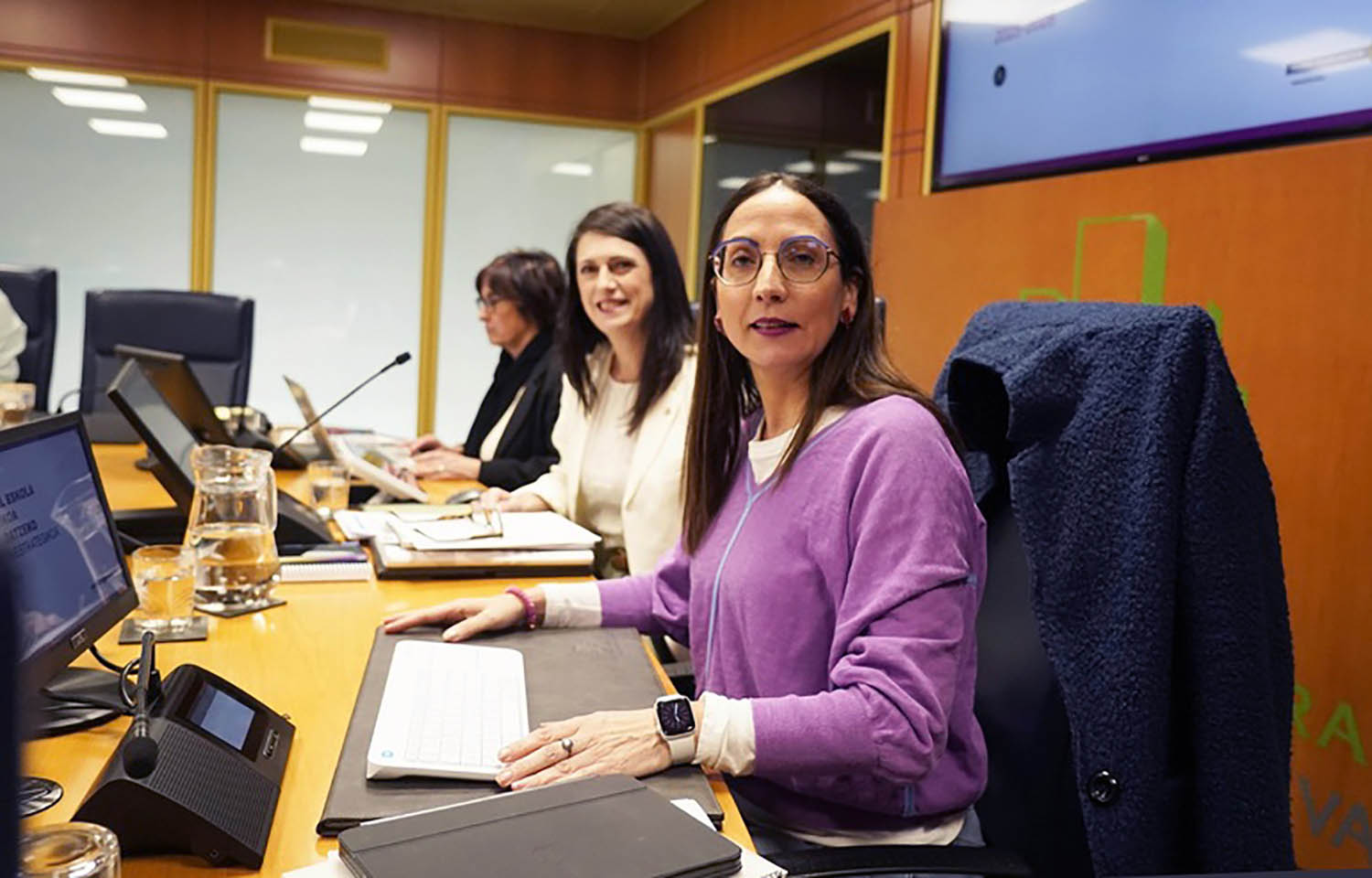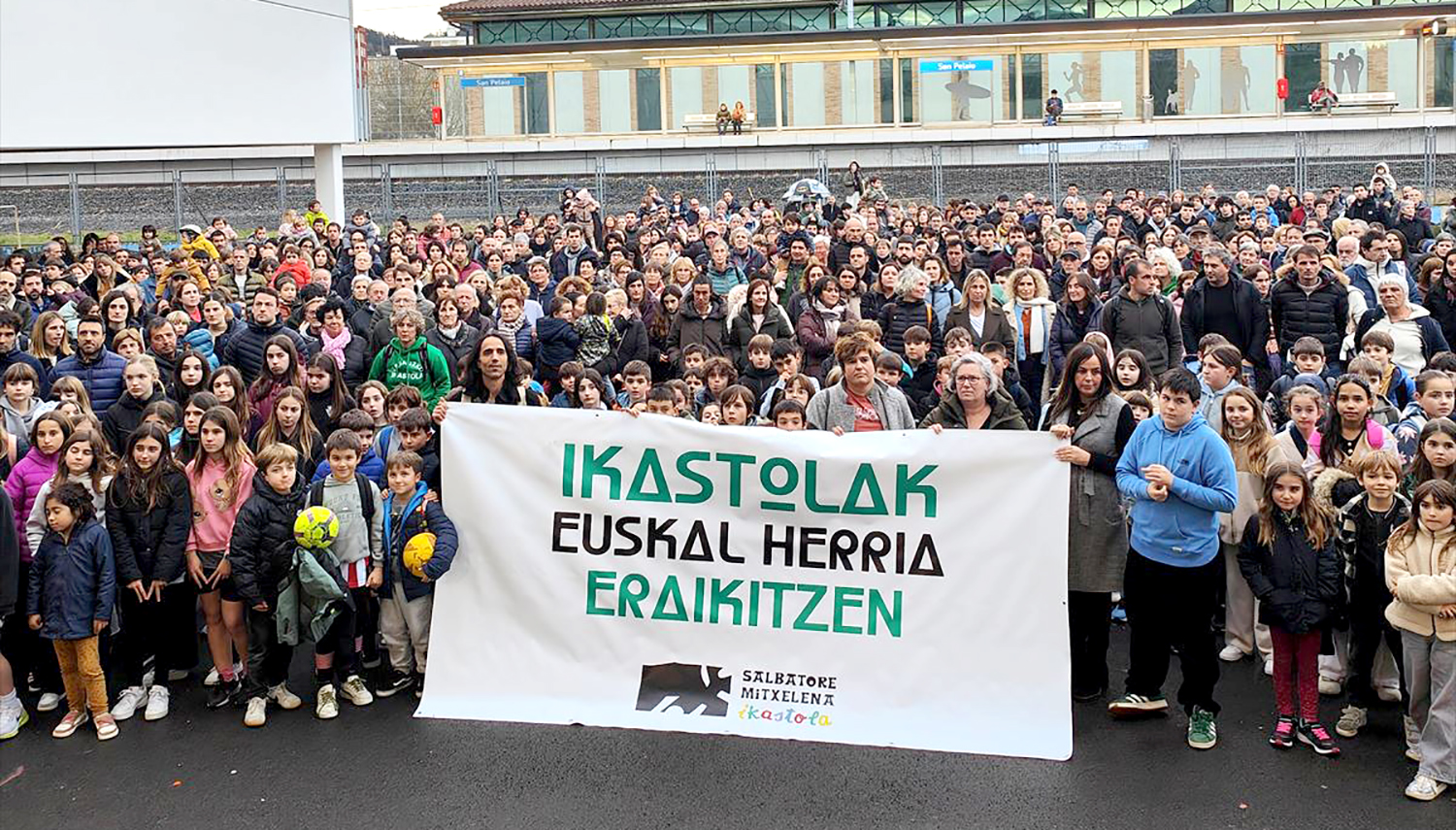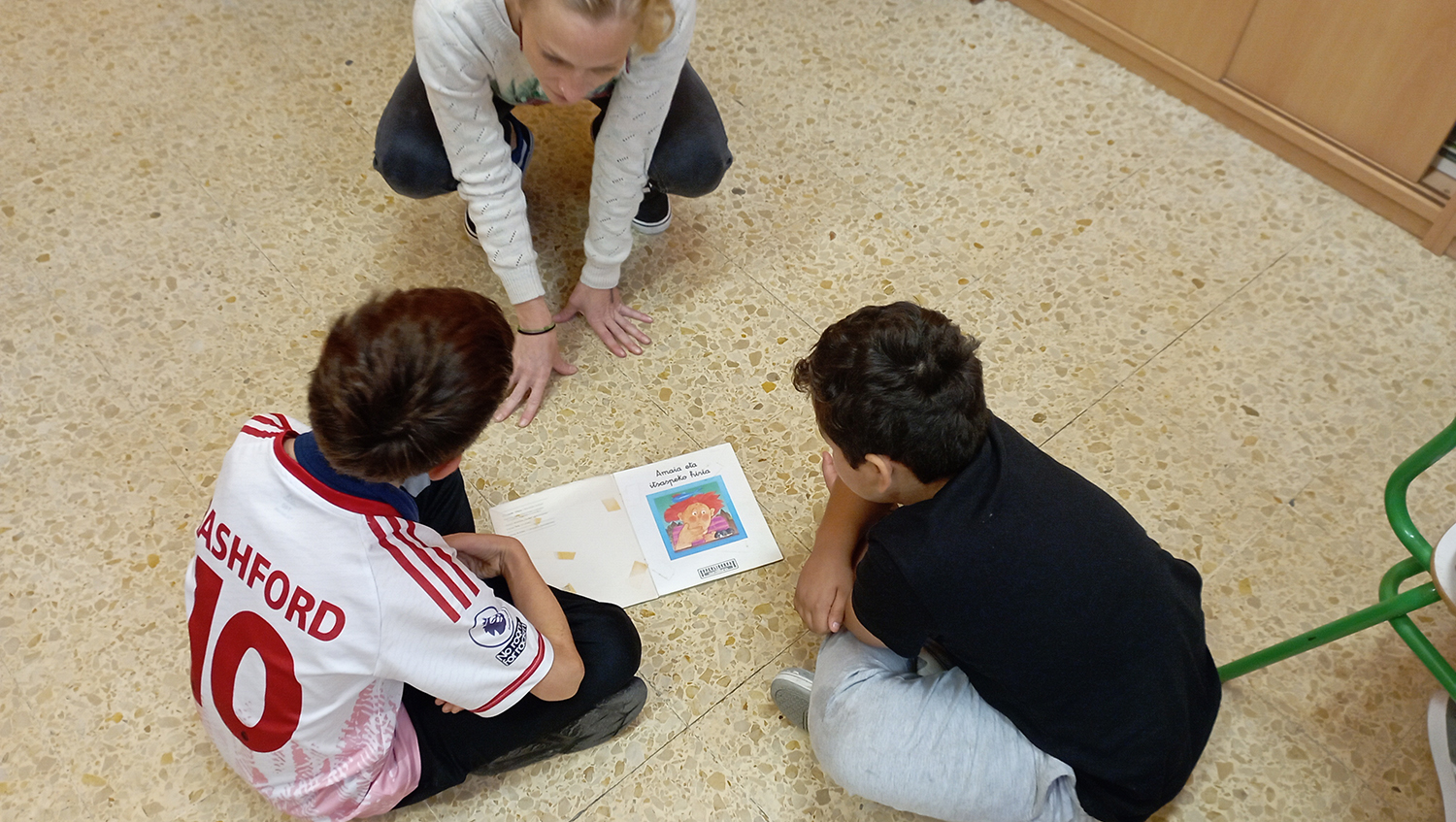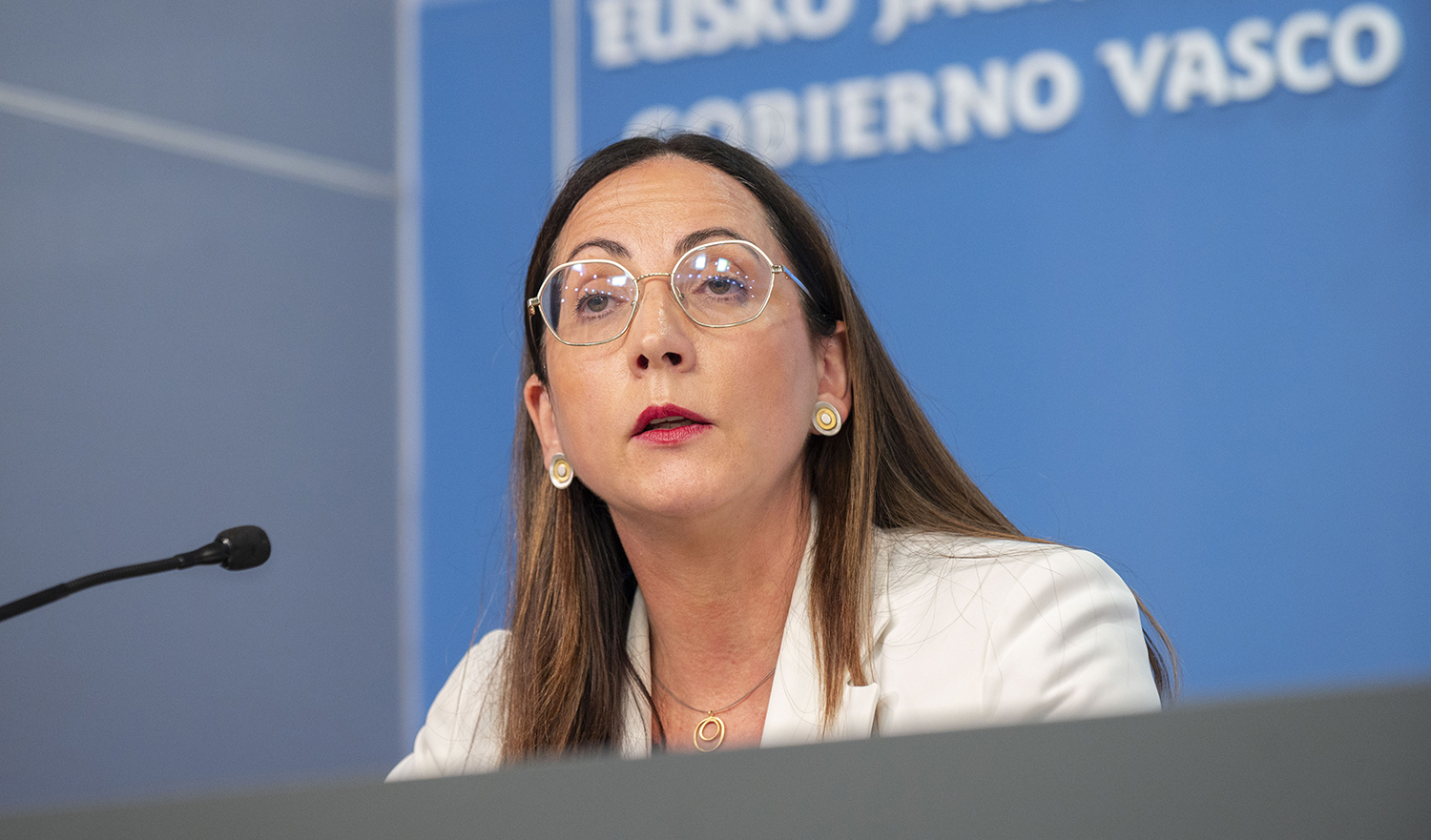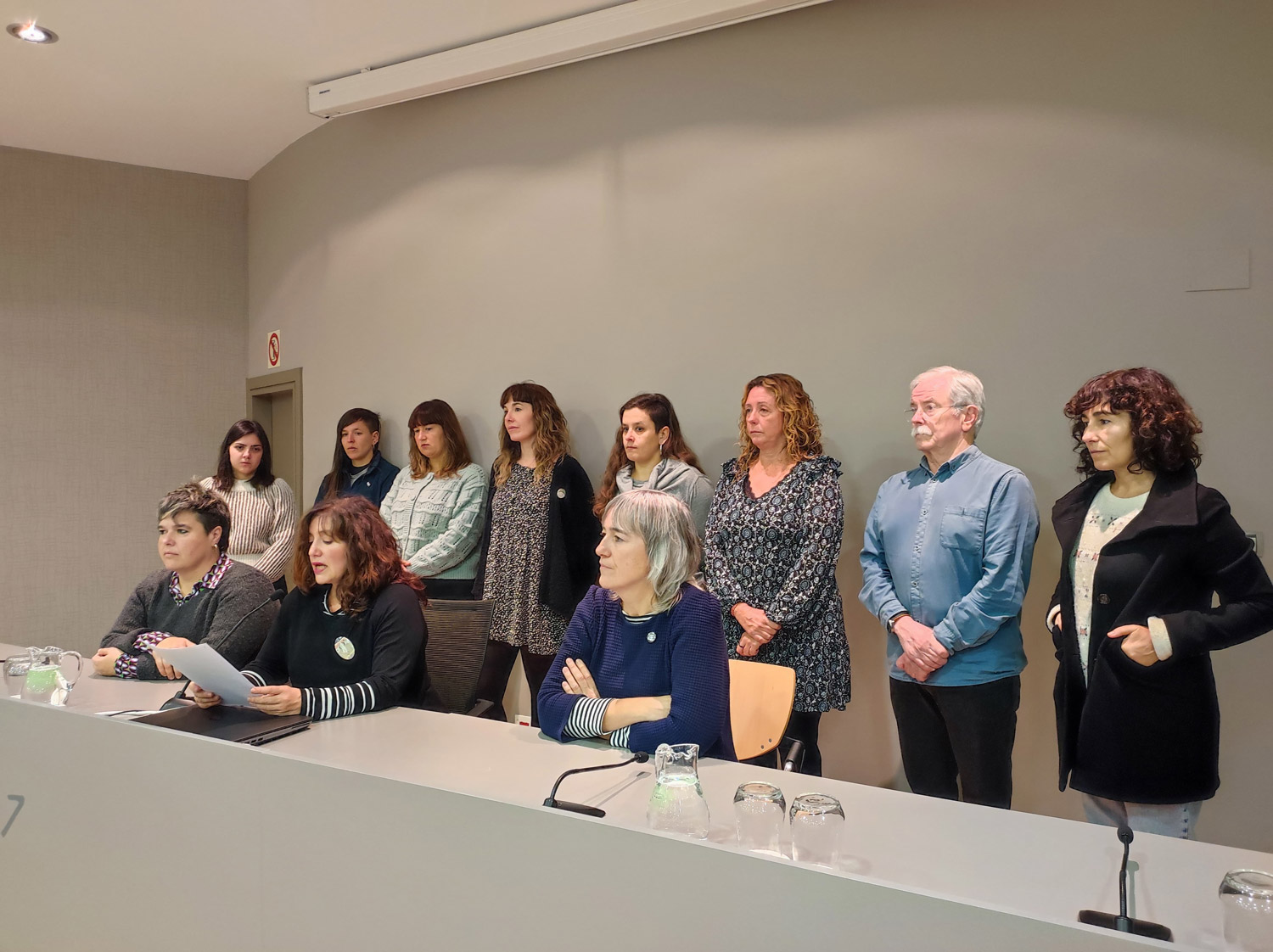According to Bildarratz, the CAV Education Act will make it possible for almost all school hours to be taught in Spanish.
- The “multilingual system centered on the Basque language” is the generalized model that the CAPV Education Law gathers for schools and agents have requested more concreteness. Well, one of the examples given by the Education Advisor seems to think: “A center of model A can decide that 80% of school hours are taught in Spanish, but at the same time, from time to time, it can lead children to a three-day barnetegi to learn better Euskera.”

Among the explanations of the Education Advisor of the Basque Government, Jokin Bildarratz, on the Law of Education of the CAV, in the Basque Parliament, a significant example has been given that the possibilities of each educational center can be very diverse, insofar as it is a multilingual system centered in the Basque country: “A center of model A, located in an area where Spanish predominates, can decide that 80% of the school hours are taught in Spanish, but at the same time, from time to time, it can take the children to a three-day barnetegi to learn better Euskera, or organize all the after-school activities in Euskera, or the dining hours…”.
When the law says that each center, depending on the context in which it is located, will decide its linguistic project, it means that the smaller the number of hours that will be taught in Basque in a more erdaldun context… up to 80% in Spanish?
The statements raise at least two doubts:
On the one hand, when the law says that each center, depending on the context in which it is located, will decide its linguistic project, does it mean that the more in an erdaldun context the less the number of hours to be taught in Basque… until 80% are taught in Spanish (and the other 20%, surely a few hours dedicated to English)? Being aware that the Euskaldunization of students in Castilian sociolinguistic contexts will require more resources and effort, instead of putting more resources and the maximum number of hours of Basque, can most of the teaching hours in Spanish be allowed, and considerably reduce the demand of the Basque language? Is it intended to keep most of the school hours in Spanish and to euskaldunify children in after-school activities or in a three-day boarding or dining room? Basically and in practice, if the maintenance of the current model A also comes into play in a multilingual system centered on the Basque language, is everything free?
And on the other hand, although the law provides that at the end of compulsory education all students must reach the B2 profile in Basque, does anyone believe that the students who study at the center of the previous example will reach the B2 level? When it is demonstrated that the model of immersion in Basque does not guarantee the euskaldunization of students, how will they be euskaldunizated in such a Castilian model?
Hot spot
Along with others, Euskaldunization has been a hotspot in the Education Act from the beginning. With the submission of the preliminary draft by the Basque Government, what was expected was reaffirmed: despite the fact that the amendments and arguments presented by many agents demanded that the current models A, B and D be exceeded and that a model of widespread immersion be established in all centres, it has not been included in the bill. The model indicated in both the Agreement and the preliminary draft is retained: “A multilingual system focused on Euskera”. Compulsory education students must complete the B2 level in Basque, for which each institution will decide its linguistic project according to its context. The Administration commits itself to the evaluation and monitoring of each linguistic project of the centres.
Why concerted teaching?
The new Education Act adopted by the CAV against most public school officials aims to ensure that concerted education is free of charge through the financing of public authorities. The Spanish State has also announced a significant increase in public... [+]
Hunters, Marianistas, Niño Jesús, CEU San Pablo - Virgen Niña, Carmelitas, Presentation of Mary, Vera Cruz, NClic, San Viator, Escorapias, Scholapios, Bárdarias, Nazareth, Immaculate Conception, Hogar San José, Egibide. More Olabide by Eusko Ikastolen Batza. Finally, the... [+]
In response to the numerous statements of the new Education Advisor, Begoña Pedrosa, Law 17/2023 on Education will be implemented at the beginning of the course, approved in Parliament with the sole support of the PNV and the PSE. This implementation will entail the application... [+]
Who orders us ...?
The Basque Government has just been set up and the Minister for Education will be Begoña Pedrosa. Being a vice-counselor in the previous legislature and being one of the founders of the new Education Law passed last December, we are allowed to ask some... [+]
The recently passed Education Act is as bad as it is new. Throughout the processing process there has been a broad social sector against the spirit of this law, and this opposition has been greater in the face of its adoption. We want to make public the assessment and reflection... [+]
The new Education Act, which had to be born of consensus, was adopted in anger and disagreement. The lack of agreement is due to the public-private question and linguistic models. A lot of pity.
In this we follow the Spanish model, because in the CAPV we are not able to lay... [+]
Those of us who write and sign these lines are young people between 20 and 26 years old who have joined us in the context of the generational relay of Euskalgintza. In our case, we have decided to contribute to the struggle of the Basque Country in the Basque Country from... [+]








